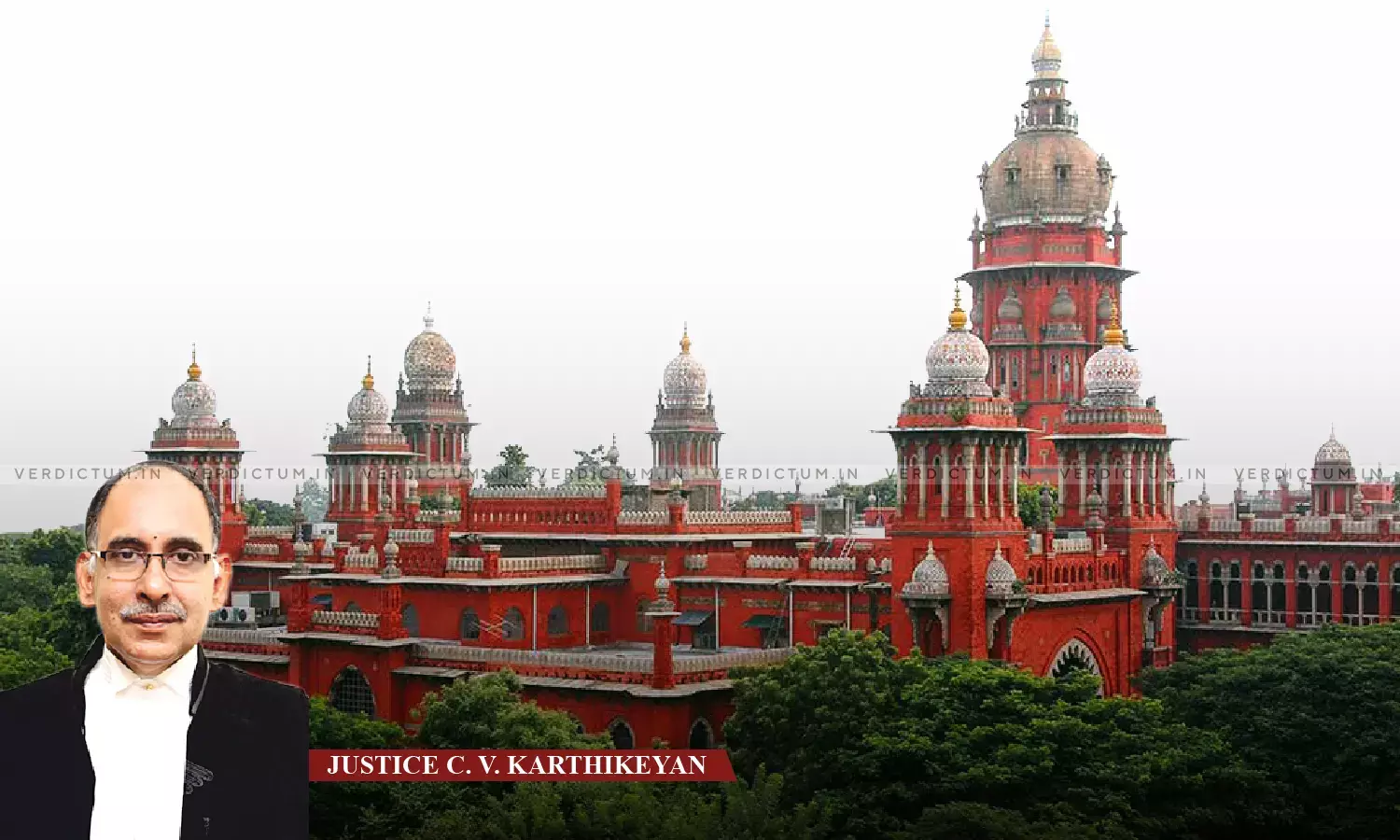“Facially Neutral Policy That Disregards Gendered Realities Is Constitutionally Infirm”: Madras High Court Quashes Union Bank’s Transfer Circulars Affecting Women Officers
The Court said that the transfer policy, though facially gender-neutral, disproportionately impacts women officers by disregarding their caregiving responsibilities and familial ties, violates Articles 15(3) and 42 of the Constitution.

Justice C.V. Karthikeyan, Madras High Court
The Madras High Court has held that a transfer policy, though facially gender-neutral, which disproportionately impacts women officers by disregarding their caregiving responsibilities and familial ties, violates Articles 15(3) and 42 of the Constitution. The Court quashed specific portions of Union Bank of India’s staff circulars permitting zonal transfers of women officers based solely on long tenure.
A Single Bench of Justice C.V. Karthikeyan observed, “Facially neutral rules can result in discrimination if they disproportionately affect a protected group.” The Court added, “There had been a direct violation of Articles 14 and 15(3) of the Constitution of India.” It further noted, “When a woman is taken away from her family, from her children, from her ageing parents or her differently abled dependents, what remains is only isolation, fear, and distress.”
The Court directed the Bank to offer repatriation to affected women officers and to ensure that future transfer policies strictly comply with the Ministry of Finance’s guidelines, which require that, to the extent possible, women officers be transferred to places near their spouses or families.
Brief Facts
The petition was filed by the All India Union Bank Officer Staff Association and a woman officer, M. Kavitha, challenging 3 Bank Staff Circulars which introduced a long-tenure transfer policy mandating zonal transfers of officers who had completed nine or more years in a zone, without specific protections for women.
The Petitioners argued that these circulars contravened the Government of India’s guidelines dated August 8, 2014 and November 26, 2024, which mandate that women officers in public sector banks should, to the extent possible, be posted near their spouses or families. The Petitioners alleged that despite these instructions, the Bank had transferred many women across states, without considering caregiving responsibilities, leading to emotional, financial, and professional hardship.
They relied on a 2014 Ministry of Finance circular which instructed banks to ensure that, as far as possible, women officers were posted near their spouses or families. They also highlighted the impact of systemic discrimination and patriarchal policy structures in public employment.
The Union Bank defended the policy as gender-neutral and in line with the CVC guidelines, but the Petitioners contended that neutrality in language could not excuse structural bias and disproportionate burdens on women.
Reasoning of the Court
The Court noted that although the circulars were presented as gender-neutral, they failed to accommodate the disproportionate impact such transfers have on women officers.
The Bench noted, “There is no fairness in the policies introduced by the respondents,” the Court said, adding that “Though the policy was termed as being gender neutral, it was, in effect, an indirect discrimination against women officers.” The Court reiterated that administrative convenience cannot override constitutional protections.
On the contention that women officers were transferred despite severe personal and family difficulties, the Court remarked, “Giving representations was an exercise in futility and the respondents had never re-considered any order of transfer.”
The Court further criticized the automated rejection of transfer appeals, stating, “The representations were replied by an autogenerated Email with general rejections and to which a reply cannot also be issued.”
The Court emphasized that the Ministry of Finance’s circulars were binding on public sector banks, stating, “Although it can be argued that the guidelines issued by the Union of India are directory in nature… it stipulates an obligation… to implement a policy that is in conformity.”
Referring to the Supreme Court’s judgment in Lt. Col. Nitisha v. Union of India, the Court reiterated that policies that do not appear discriminatory on their face but result in disparate burdens on women constitute indirect discrimination and violate the principle of substantive equality.
Addressing the Bank’s claim that the transfers were required by the Central Vigilance Commission’s guidelines and staffing needs, the Court observed, “An employee cannot by himself or herself retain a post for a period of nine years… The blame equally lies on the employer for having permitted such a situation to happen.”
The Court consequently quashed the impugned transfer circulars insofar as they affected female officers and directed that they be given the option to return to their hometowns or be placed in locations near their families. It also held that the Respondents must, in future, ensure their transfer policies do not result in systemic or even indirect discrimination against women employees.
Cause Title: All India Union Bank Officer Staff Association & Anr. v. Union Bank of India & Ors. (Neutral Citation: 2025:MHC:W.P.28838/2024)
Appearance
Petitioners: Senior Advocate R. Vaigai; Advocate Anna Mathew
Respondents: Senior Advocate Srinath Sridevan; SPC K. Srinivasamurthy ; Advocate Edward James


